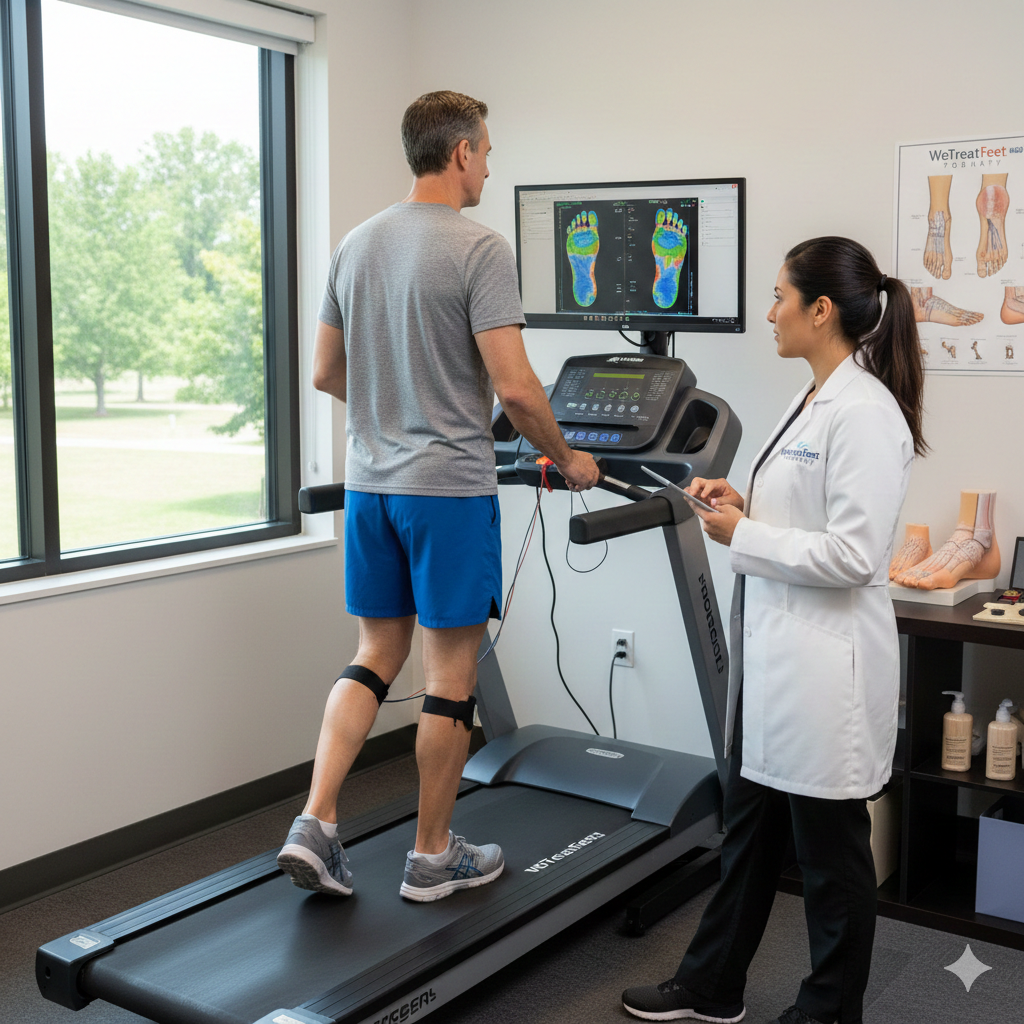
Learn about the clinical trials at WeTreatFeet, click here
In the realm of foot and ankle care, surgical procedures have evolved significantly over the years. Yet, ongoing progress depends on rigorous clinical trials that push the boundaries of knowledge and refine surgical techniques, making care safer and more effective. At We Treat Feet Podiatry, our commitment to advancing foot and ankle health is deeply intertwined with supporting and embracing clinical research that propels treatment forward.
Clinical trials serve as the foundation for innovation in foot and ankle surgery. These carefully designed studies systematically assess new surgical methods, implants, and postoperative therapies that can improve recovery times, reduce complications, and enhance long-term outcomes for patients. Beyond pioneering surgical techniques, clinical trials also rigorously evaluate nonsurgical treatments, rehabilitation protocols, and preventive care approaches that together improve overall foot and ankle health.
Why Clinical Trials Matter in Foot and Ankle Surgery
Foot and ankle conditions are complex and varied. From common problems like bunions and heel pain to more severe issues such as diabetic foot complications or sports injuries, precision in treatment is essential. Clinical trials allow surgeons and researchers to gather validated evidence about which procedures deliver the best results for specific conditions. This evidence-based approach transforms traditional practices into cutting-edge care strategies.
For example, trials testing minimally invasive surgical techniques have contributed to quicker recovery times and less postoperative pain, giving patients a smoother path back to mobility. Trials assessing novel implant materials and designs have led to stronger, longer-lasting joint reconstructions. Equally important are studies exploring optimized pain management and infection prevention protocols, which reduce surgical risks and improve patient comfort.
At We Treat Feet Podiatry, our surgeons frequently participate in clinical research, ensuring they remain at the forefront of advances in the field. This engagement enables our team to offer Maryland-area patients access to promising new treatments within a structured, safe framework. It also reflects our core mission to provide exceptional care grounded in scientific integrity and innovation.
Types of Clinical Trials Impacting Foot and Ankle Surgery
Clinical trials come in various forms depending on their purpose:
Interventional trials: These assess specific surgical techniques, new devices such as orthopedic implants, or drugs that improve healing and reduce inflammation.
Observational studies: By tracking patient outcomes over time, these studies identify factors influencing surgical success or complications.
Comparative trials: These pit existing procedures against new approaches, helping define the most effective standard of care.
Each trial phase—from initial safety assessments (Phase 1) through efficacy evaluations (Phase 2 and 3) to long-term surveillance (Phase 4)—plays a critical role. Importantly, all clinical trials undergo ethical review and patient consent processes, ensuring safety and transparency.
The Role of Innovation and Patient Participation
Without patient involvement, clinical trials cannot succeed. Those who volunteer help shape the future of foot and ankle treatment, gaining early access to therapies that may surpass conventional options. Participation also contributes to a greater understanding of how diverse patient factors—such as age, activity level, and co-existing conditions—affect treatment outcomes.
Recent innovations driven by clinical trials include computer-assisted surgery, custom 3D-printed implants, and biologic therapies like platelet-rich plasma (PRP) to stimulate healing. The integration of gait analysis and orthotic technologies has also been refined through research, improving both surgical planning and rehabilitation protocols.
Engaging with Clinical Trials at WeTreatFeet Podiatry
Our team at We Treat Feet Podiatry prioritizes both exceptional patient care and research involvement. Led by accomplished surgeons like Dr. Mikel Daniels—recognized as a 2024 Top Doctor by Baltimore Magazine for excellence in podiatry—we maintain ties with academic centers and clinical research networks that drive progress. This allows us to offer patients in the Maryland area access to select clinical trials and new treatment opportunities tailored to their needs.
If you are experiencing foot or ankle pain, or facing surgery, discussing clinical trial options might be beneficial. Our podiatrists provide comprehensive consultations and walk patients through the clinical trial process, highlighting potential risks and benefits. Being informed empowers patients to make the best choices for their health journeys.





